MMS Instructors
(listed alphabetically by last name)
(listed alphabetically by last name)
These scholars, filmmakers, writers, festival programmers, curators, and artists have volunteered their time with MMS to create courses and lectures for the Montréal community.

Sofia Ajram is an independent scholar and jewelry designer based in Montreal. She holds a BA from McGill University with a degree in Gender, Sexuality, Feminist, and Social Justice Studies and East Asian Studies. She is a moderator for the Horror forum on Reddit and a regular contributor to the community. Her work has been published in Vice, Forbes, The Montreal Gazette, among many others. Her passions include a focus on contemporary horror film and literature.
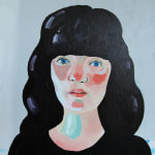
Melanie Ashe is currently undertaking her Masters in Film Studies at Concordia University, where she has been doing research in environmental film industries, superheroes and pop culture. Growing up in Australia, she developed a fascination with Australian cinema and storytelling, and a love of Oz-Horror films. She has published articles in Reinvention journal, written for online journals Peephole and Screen Machine, and experiments in playful video-criticism. In a previous life, she volunteered at ACMI (Australian Centre for the Moving Image) teaching kids how to make a horror movie in 3 days.

David Austin is the author of Fear of a Black Nation: Race, Sex and Security in Sixties Montreal (2013), winner of the 2014 Casa de las Americas Prize. He has also produced radio documentaries for CBC’s Ideas on the life and work of C.L.R. James (The Black Jacobin, 2004) and Frantz Fanon (The Wretched of the Earth, 2006) and he currently teaches in the Department of Humanities, Philosophy and Religion at John Abbott College.
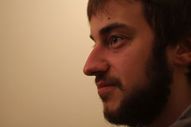
Mark Barber is a Ph.D. student in Film & Moving Images at Concordia University. He received his BA and MA in Cinema & Media Studies from York University. He has worked as a researcher for the Queer Media Database, and as a film critic for Wylie Writes and Fresh from the Theatre. He is the co-founder of the Toronto-based film curatorial collective The Citizens’ Committee on Moral Hygiene, which specializes in avant-garde cinema.
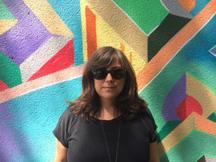
Mikaela Bobiy is a faculty member of the Humanities Department at Dawson College. She completed a PhD in Art History at Concordia University, where her research focused on performance art and masochism. She currently teaches courses on propaganda and visual culture, and more recently a course on horror film and moral philosophy. Her first pet was named Leatherface.

Yann Brouillette was born in Montreal in 1981 and has loved comic books since childhood. Yann completed his Ph. D. in Chemistry in France in 2008. In 2010, Yann became the head-writer for the Canadian super hero comic book series Heroes of the North with the publication of the Canadian Shield issue #1, which he co-wrote with his brother. He also writes sci-fi short stories for the bi-annual Zidara 9 Québec anthology. Now a chemistry professor at Dawson College in Montreal, Quebec, Yann has created a new complementary course for non-science students entitled "Comic Book Chemistry" where he uses situations depicted in graphic novels to describe basic chemistry. Check out his webpage, Comic Book Chemistry: The Science Behind Super Powers.

Anaïs Charbonneau-Poitras is an undergraduate student in psychology, faculty of arts, at McGill University. As a former Dawson College student and Dawson rower, she was an editor and writer for the Dawson English Journal. The 2017 edition published two of her essays, “Southern Forms of Grotesque; Faulkner’s “A Rose for Emily” and O’Connor’s “A Good Man is Hard to Find”” and [Thomas Ligotti's] “Teatro Grottesco: A Predestined Spectacle of Insignificance”. She also wrote, created and collaborated on projects with Dawson arts S.P.A.C.E.. These include a poem for both of the collaborative pieces of Broken Telephone and Distorted Storytelling, the stream of consciousness, “Current of Doubt”, and the short film, “The Missing Piece of the Puzzle”. Her creative works weave through surrealism, unreliable narrators and an existential confrontation with the sublime. Charbonneau-Poitras seeks solace by psychoanalyzing repression in horror films and spaghetti westerns.
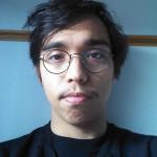
Ariel Esteban Cayer is a writer and film programmer based in Montréal. He holds a BFA in Film Studies from Concordia University and has been working with the Fantasia International Film Festival since 2012, where he has been a programmer since 2013. He is also the director and curator of Film POP, the film section of the POP Montréal International Music Festival, since 2014. As a freelance writer, he has contributed to genre film publications such as Spectacular Optical, Fangoria, and Rue Morgue, as well as francophone outlets such asPanorama-Cinéma, 24 Images, Voir and Vice Québec.

Alexandra Dagenais est fascinée par le cinéma de genre depuis la nuit traumatisante où à 12 ans son père lui fit découvrir The Exorcist. De sa rencontre avec l’horreur naquit une passion pour le cinéma qui la transporta jusqu’aux études supérieures à l’Université de Montréal. Elle est maintenant détentrice d’une maîtrise en cinéma d’horreur traitant de la répression sexuelle féminine dans les films de possession. Elle songe poursuivre au doctorat pour pouvoir se faire appeler Docteur Terreur.

Mario DeGiglio-Bellemare is a “monster kid” who teaches courses on genre cinema, grotesque traditions, cinematic bodies, and monster ethics in the Humanities department of John Abbott College. He began to watch monster movies at the age of 9, staying up to watch Hammer films on late-night television. He has been an independent filmmaker all his life beginning with his first super-8 film, One Dark Night, which he shot in his parents’s back yard. His films combine a love of silent cinema, “exploitation films,” the horror genre, and attractions-based sensibilities. He is also a programmer and coordinator for the Montreal Underground Film Festival. He completed his PhD at the University of Toronto, and is presently finishing a book linked to the history of the Parisian Grand-Guignol theatre, entitled Sinister Tableaux: Grand-Guignol Cinema, Corporeality and the Senses. He has published articles on the Grand-Guignol and cinema in the journal Horror Studies (5.1), and in the book, Recovering 1940s Horror: Traces of a Lost Decade (2015), for which he is a co-editor. He also published an article on Jean Rollin for the book, Global Fear: International Horror Directors (Intellect Press, 2016). He is an occasional writer for the Canadian horror genre magazine Rue Morgue.
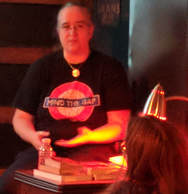
Mariane Desautels has been a part of Montreal's horror community for many years. A longtime member of the community that became MMS, Mariane gave the second lecture in the Monstrum Brood series, "Down the 'Rabid' Hole with Midnight Meat Train: Subways and Horror," in March of 2018 (pictured).

Clayton Dillard is a doctoral candidate in Screen Studies at Oklahoma State University. He also works as a critic for Slant Magazine, where he writes film reviews and has interviewed many internationally renowned filmmakers, including Agńes Varda and Apichatpong Weerasethakul. Recent Publications include a chapter on Buffy the Vampire Slayer and the "Slasher Template" in Joss Whedon vs. the Horror Tradition: The Production of Genre in Buffy and Beyond (Bloomsbury/I.B. Tauris, 2019).
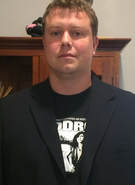
Will Dodson is the Ashby and Strong Residential College Coordinator and Adjunct Assistant Professor of Media Studies at The University of North Carolina at Greensboro. He teaches courses on rhetoric, literature, and film, with a focus on exploitation and alternative literature and cinema. He has published essays on Tod Browning, Jess Franco, and various aspects of horror films in edited collections and journals including Quarterly Review of Film & Video and Film International. He is the co-editor, with David A. Cook, of The Anthem Series on Exploitation and Industry in Global Cinema, a forthcoming book series on exploitation films and filmmakers and the various ways in which they have subsidized mainstream cinema and culture. Dodson became a committed connoisseur of horror and exploitation cinema in 1996, when he discovered the sublime pleasures of Slumber Party Massacre II in a VHS bargain bin at "Action Video," a hole in the wall rental store located between a laundromat and an abandoned building. After that formative experience, he watched every single movie in the horror section, from The Abominable Dr. Phibes to Zombie Nightmare. As fate would have it, by the time Dodson reached "V," he already had become rabid fan of David Cronenberg, whose Videodrome will be the primary subject of Dodson's visit to MMS.
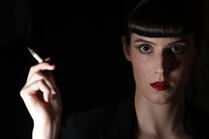
Charlie Ellbé is a graduate of the M. A. Film Studies program at Concordia University. She completed her thesis on art direction in Universal Studios’ horror films of the 1930s. Charlie has taught courses on classical Hollywood horror cinema, on the monstrous-Feminine, and on horror radio shows and their movie adaptations in the 1940s at the Montreal Miskatonic Institute of Horror Studies. She also recently graduated from McGill University with a Masters in Library and Information Studies.

Ellen Freeman was scared-to-death by Kubrick’s The Shining at the age of 10. Ever since, she has challenged herself with thrilling film and literature in an attempt to wipe away the horrors of Jack Torrance’s mental breakdown, while also pursuing an identical fright. She is an MA student at Concordia University where she continues to educate herself on the psychological and sociological functions of horror audiences like herself. Currently, Freeman’s research focuses on horror-fan receptions of cult, shock and exploitation cinema.
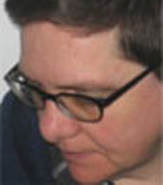
Anne Golden is on the Creative Arts faculty of John Abbott College, and is Artistic Director of Groupe Intervention Video, an artist-run distribution, exhibition and production centre for videos directed by women. She is an independent curator and writer whose programs include Horizontal Holds/Vertical Views: Recent Canadian Art Video (Musée National du Québec, 2001) and Seuils/Thresholds (Edges Festival, Victoria, 2006). She has also curated programs for Vtape (Toronto) and Centre for Art Tapes (Halifax). Golden has made 12 videos since 1991. Among these are Fat Chance (1994), Big Girl Town (1998), Somme (2005) and From the Archives of Video Populaire (2007). She recently published the fictional chronicle, From the Archives of Video Populaire (2016, Pedlar Press), and has an essay in Joss Whedon vs. the Horror Tradition: The Production of Genre in Buffy and Beyond (I.B. Tauris, 2019).
David Hanley has a BFA and MA in Film Studies from Concordia University and is currently pursuing a PhD in Indigenous and Canadian Studies at Carleton University, where he has also taught in the Department of Film Studies. He is a frequent contributor to the online film journal Offscreen, and has had pieces published by the University of Toronto Quarterly, Canadian Journal of Irish Studies, Synoptique, The Projector, Isis and Nuacht. He also contributed several entries to the Historical Dictionary of South American Cinema by Dr. Peter H. Rist (Rowman & Littlefield, 2014) and chapters to Reclaiming 1940s Horror Cinema: Traces of a Lost Decade(Lexington Books, 2015) and the upcoming The Spaces and Places of Canadian Popular Culture (Canadian Scholars/Women’s Press). He has been a programmer for Cine Gael of Montreal’s annual series of contemporary Irish films since 2011.
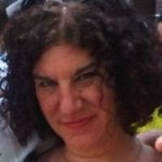
Karen Herland probably permanently damaged her eyes reading very scary books under the covers by flashlight just to prove to herself that she could. She earned her MA in Communication Studies at McGill – reading 24 years worth of microfilm for seven different Montreal dailies in the early 20th century, to figure out how the press represented vice, crime and prostitution (OK, that didn’t help the eyesight, either). She occasionally teaches courses on gender, space, power and culture at Concordia’s Simone de Beauvoir Institute. Her graduate research at McGill University on the cultural construction and moral regulation of women in the sex trade led to participation in the Centre d’histoire de Montréal’s exhibition Scandal! Vice, Crime and Morality in Montreal, 1940-1960 (2014-2016). Her recent publications include chapters in Recovering 1940s Horror Cinema: Traces of a Lost Decade (2015) and Joss Whedon vs. the Horror Tradition: The Production of Genre in Buffy and Beyond (Bloomsbury/I.B. Tauris, 2019).
Eva Latourneau
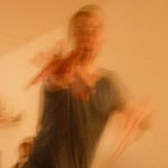
Cory Legassic is a faculty member of the Humanities and Sociology Departments at Dawson College, Montréal, Québec, where he teaches courses on Social Movements, Social Justice Education, Anti-Racism, Media and Feminist Masculinities. His article “Reasonable Accommodation as a Settling Concept” was published in The Canadian Women’s Studies Journal in their special issue on Women and Canadian Multiculturalism (2010). Other publications include an article on horror icon Rondo Hatton and the politics of disfigurement in Recovering 1940s Horror Cinema: Traces of a Lost Decade (Lexington, 2015).
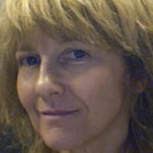
Rosanna Maule is Associate Professor of Film Studies at Concordia University, Montreal. She is the author of Digital Platforms and Feminist Film Discourse: Women's Cinema 2.0 (Palgrave, 2016), Beyond Auteurism (Intellect, 2008), and the main editor of In the Dark Room: Marguerite Duras and Cinema (Peter Lang, 2009). With Guylaine Dionne she has just completed a feature documentary film on the role of women directors in fiction film-making around the world. She has been a member of the research team GRAFICS since 2002 and she is an active member of the Women and Film History International association and of the Women’s Cinema Global network, with which she has directed two international conferences in Montreal in 2003 and 2016, respectively.
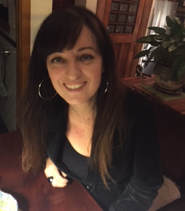
Rebecca Million, M.A., teaches journalism, and courses on myth and monsters, and on The Lord of the Rings in the English Department at Dawson College, Montréal, Québec. She recently published on George A. Romero's Knightriders in the inaugural issue of MONSTRUM (2018).
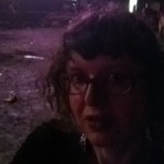
Ursula Misztal moved to Montreal in 1996 while finishing a Master’s Degree at the Centre for the Study of Theory and Criticism in London, Ontario. She has been busy ever since trying to master the art of teaching while working as a Literature instructor at Dawson College. Favourite courses include Feminism and Philosophy (New School), Utopia/Dystopia, Literature and Culture (Creative Arts Language and Literature program). The intersection between literature and science has become a recent interest.
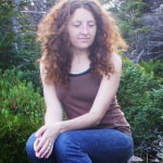
Shalon Noble loves all things gothic. She holds a Ph.D. from Western University and teaches in the English department at Dawson College in Montréal. She studies and teaches Romanticism, ecocriticism, and theory, and her article about John Clare’s asylum poetry is forthcoming. Her current research is on the nature in and of Frankenstein.
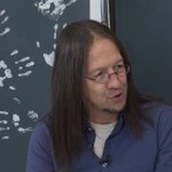
Bernard Perron est professeur titulaire au département d’histoire de l’art et d’études cinématographiques à l’Université de Montréal. Fan d’horreur, il aime bien jouer à se faire peur en lisant des romans et des bandes dessinées, regardant des films et s’immergeant dans des jeux vidéo. Il a entre autres dirigé l’ouvrage Horror Video Game: Essays on the Fusion of Fear and Play (2009), et écrit Silent Hill: The Terror Engine (2012, version française en 2016) ainsi que The World of Scary Video Games: A Study in Videoludic Horror (2018). / Bernard Perron, a professor of art history and cinema at Université de Montréal, is a leading scholar of horror video games and interactive cinema. His books include the edited collection,Horror Video Game: Essays on the Fusion of Fear and Play (2009), as well as Silent Hill: The Terror Engine (2012, version français en 2016), and the upcoming The World of Scary Video Games: A Study in Videoludic Horror (2018).

Papagena Robbins, a native of San Francisco, recently finished her PhD in the Film and Moving Image Studies Doctoral program at Concordia University, where she has taught non-fiction film, writing, and film history. Her research looks to the baroque critical methodologies of recent archive-based city films to shed light on new/old uses of the moving image archive to cultivate historical consciousness as opposed to historical narrative. She also curates special programs of formally challenging documentaries for the Sebastopol Documentary Film Festival in California, and is editing two up-coming special issues of the online, peer-review, film journal, Synoptique: one on film festival networks, and another on the moving image archive in the 21st century. In 2012, Papagena and Monstrum co-director, Kristopher Woofter co-wrote and published, “Gothumentary: The Gothic Unsettling of Documentary’s Rhetoric of Rationality” in the Italian literary journal Textus, an experience that remains one of her most satisfying intellectual collaborations to date.
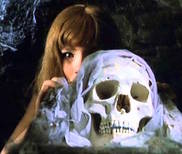
Virginie Sélavy is the founder and editor of Electric Sheep, the online magazine for transgressive cinema. She was the co-director of the London branch of The Miskatonic Institute of Horror Studies from January 2015 to December 2017. She has edited the collection of essays The End: An Electric Sheep Anthology, and has written about Jean Rollin, Michael Powell and Victorian London on film. Her work has appeared in various publications, including Sight & Sound, Cineaste and Rolling Stone (France). She regularly gives talks and runs courses on topics ranging from women exploitation directors to May 68 and French fantastique cinema. She is currently working on a book on Sado-Masochism in cinema. More info: www.electricsheepmagazine.com
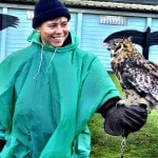
Jay Shea teaches in the Department of English at Dawson College in Montreal. Years before becoming a Shakespearean and receiving a PhD in English from McGill University, Jay was weaned on low-budget horror films broadcast on local Chicago television. Jay recently published on George A. Romero's Night of the Living Dead in the inaugural issue of MONSTRUM (2018).
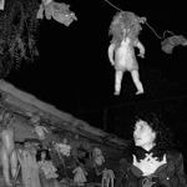
Alanna Thain teaches cultural studies and world cinemas, and also directs the Moving Image Research Laboratory (mirl.lab.mcgill.ca) at McGill University, where at least part of Happy Birthday to Me (1981) was filmed (most of the film was filmed at Concordia University). She would like to confirm that she is still recovering from watching that film while unsupervised at a very young age, and is still waiting to be able to watch it again. She recently published the book, Bodies in Suspense: Time and Affect in Cinema (2017, University of Minnesota Press). Her horror specialty is the work of David Lynch. She also runs a bike powered mobile cinema project, Cinema out of the Box, and collaborated with the Volatile Den screening series for a cemetery screening in the summer of 2015.

Annaëlle Winand is a PhD candidate at l’Université de Montréal and film programmer at the Montreal Underground Film Festival. She grew up in Belgium where she studied history and archival science all while developing a passion for horror, surrealist and experimental cinema. She has written about horror for different Belgian and French websites and magazines (Kweb, Sinok, Desperatezombie). Her research now focuses on the use of archives in experimental found footage films.
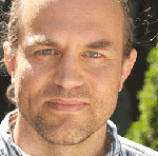
Chris Whittaker is a physics teacher and Coordinator of the Science Program at Dawson College. He has a Masters Degree in Engineering Physics from Queen’s University where he specialized in aeronautics and nuclear engineering. At Dawson, he created a course for non-science students that explores a variety of topics in physics through movies and TV shows. Before his teaching career, Chris also completed a Masters Degree in Social Work and worked for several years in emergency mental health, with at-risk-youth and as an intake worker at a CLSC. Along the way he also managed to do two radio documentaries for the CBC Radio One program Ideas, including one on how size matters in engineering, biology and the movies.
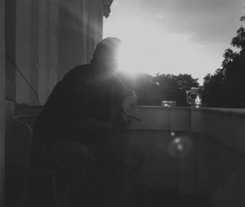
Michael Wood earned his PhD from the McGill Institute of Islamic Studies (2004), where he focused on the history and politics of Indonesia. He is a full time faculty member in the Department of Humanities, Dawson College. His current research interests include the use and misuse of historical themes and symbols for purposes of nation building, regime legitimization and national branding in Indonesia and the Balkans. Additionally, he has a background in archaeology, having been involved in the excavations of a Roman bathhouse at Tel Dor, Israel, a Mayan palace at Cahel Pech, Belize and the Iron Age fortifications of Tell Jawa, Jordan. He has been interested in pseudo-archaeology, popular misconceptions of the past involving lost civilizations and ancient aliens, since the original broadcasts of the show In Search of in the late 1970’s. He has also held a long interest in the fantasy and horror works of Robert E, Howard, the creator of Conan and has presented on both of these subjects at the Miskatonic Institute. His publications include Official History in Modern Indonesia: New Order Perceptions and Counterviews (2005), “Indonesian Nationalism” in Nations and Nationalism in Global Perspective: An Encyclopedia of Origins, Development and Contemporary Transitions (2008), and “Archaeology, National Histories and National Borders in Southeast Asia" in The Borderlands of Southeast Asia: Geopolitics, Terrorism and Globalization (2011).
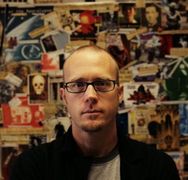
Kristopher Woofter is a faculty member of the English Department at Dawson College, where he teaches courses on the American Gothic, the Weird tradition, and horror in literature, cinema and television. He served for ten years as a co-chair for the Horror Area of the Popular Culture and American Culture Associations’ annual national conference, and is a charter associate and Vice-President / President-Elect of the Whedon Studies Association. He received his PhD in Film and Moving Image Studies from Concordia University, and was selected as valedictorian for the Faculty of Fine Arts. His publications include work on the intersection of the Gothic and documentary in the Italian journal Textus, (2012), and a chapter on The Cabin in the Woods in Reading Joss Whedon (Syracuse UP, 2014). Other publications include the co-edited collection, Recovering 1940s Horror: Traces of a Lost Decade (2015), an essay on The Hellstrom Chronicle in the inaugural issue of MONSTRUM (2018), and a co-edited collection entitled, Joss Whedon vs. the Horror Tradition: The Production of Genre in Buffy and Beyond (Bloomsbury/I.B. Tauris, 2019). Current research projects include work on Tobe Hooper and Shirley Jackson. Kristopher is also Associate Editor of Slayage: The Journal of Whedon Studies, and a programmer/coordinator for the Montréal Underground Film Festival.
